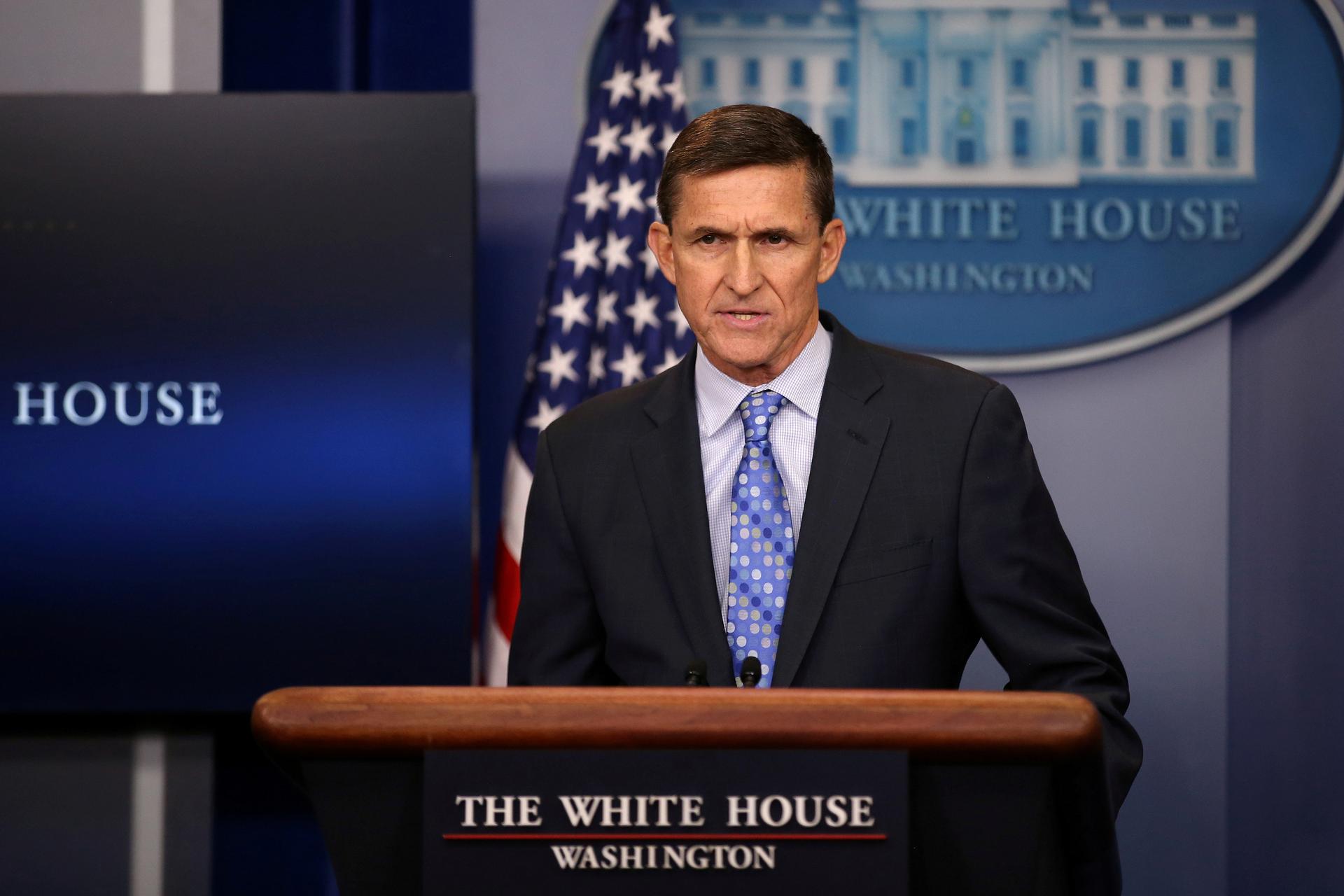US National Security Advisor Michael Flynn resigns under mounting weight of scandals
National security adviser General Michael Flynn delivers a statement daily briefing at the White House in Washington February 1, 2017.
Donald Trump's national security advisor Michael Flynn resigned after it was revealed he misled top officials over his contacts with Russia, an unprecedented departure so early into a US president's administration.
The White House late Monday said Trump had accepted Flynn's resignation amid allegations the retired three star general discussed US sanctions strategy with Russia's ambassador Sergey Kislyak before taking office.
Flynn — who once headed US military intelligence — insisted he was honored to have served the American people in such a "distinguished" manner, despite the Trump presidency being less than a month old.
Flynn admitted that he "inadvertently briefed" the now Vice President Mike Pence with "incomplete information" about his calls with Kislyak.
Pence had publicly defended Flynn, saying he did not discuss sanctions, putting his own credibility into question.
"Regarding my phone calls with the Russian Ambassador. I have sincerely apologized to the President and the Vice President, and they have accepted my apology," read Flynn's letter, a copy of which was released by the White House.
Flynn's resignation came after details of the telephone calls were made public — increasing pressure on Trump to take action.
Several US media outlets reported Monday that top Trump advisors were warned about Flynn's contacts with the Russians early this year, reopening questions about who knew about the calls and why Trump did not move earlier to replace Flynn.
The resignation will also fuel calls for an independent investigation into Russia's influence during the 2016 US presidential election and throws into doubt the fledgling effort from Trump to establish ties with President Vladimir Putin.
The Kremlin on Tuesday said Flynn's resignation was "not our business".
"This is the internal business of the Americans, it is the internal business of President Trump's administration," spokesman Dmitry Peskov told journalists in Moscow.
Blackmail?
On Monday, White House spokesman Sean Spicer insisted Trump was not consulted about Flynn, a former head of defense intelligence, discussing sanctions, nor did he task the retired general to do so.
The Justice Department had warned the White House that Flynn had misled senior administration officials about the contents of his talks with Kislyak, and that it could make him vulnerable to Russian blackmail, US media reported.
The message was delivered in the last days of Barack Obama's administration by then-acting attorney general Sally Yates — who Trump sacked after she instructed government lawyers not to defend the new president's controversial travel ban.
CNN said then director of national intelligence James Clapper and then CIA chief John Brennan agreed the White House should be told about the concerns.
Until quitting, Flynn had been instrumental in Trump's inner circle.
He was an early supporter of Trump's improbable bid for the presidency and had encouraged tougher policies on Iran and a softer policy on Russia.
That was a sharp break from the Obama administration, which introduced sanctions over Moscow's annexation of Ukraine's Crimea, support for separatists in eastern Ukraine, and what US intelligence says were its attempts to sway last year's election in Trump's favor.
Washington and Moscow had also clashed over alleged war crimes in Syria, where Russia is accused of aiding the bombing of hospitals and other civilian targets. Despite this, Flynn had argued for rapprochement.
Several Republicans had joined their Democratic foes in urging Flynn to resign over a situation that had become an embarrassment for the ruling party.
Flynn's resignation came just days before Trump's first official talks with Israeli Prime Minister Benjamin Netanyahu, discussions in which the president's national security advisor would normally have a key role.
Successor talk
The Justice Department and Congress are both investigating possible links between Trump campaign advisors and Moscow. US intelligence has concluded that Putin personally directed an operation to interfere in the election.
On December 29, the Obama administration sanctioned four Russian individuals and five entities, and expelled 35 Russian diplomats in retaliation. Although the Russian foreign ministry prepared a response, Putin ruled it out.
After Flynn quit, the White House said Trump had named retired lieutenant general Joseph Kellogg, a decorated Vietnam war veteran who was serving as a director on the Joint Chiefs of Staff, to be interim national security advisor.
The Washington Post, citing unnamed White House sources, reported that Vice Admiral Robert Harward, a former deputy commander of the US Central Command – in charge of US-led wars in the Middle East and Afghanistan — and a friend of Defense Secretary James Mattis, is the frontrunner to replace Flynn.
Other media said that retired general David Petraeus, the ex-CIA director and Iraq and Afghanistan war veteran, is also possible, along with Kellogg.
Petraeus resigned in disgrace from the CIA over an extramarital affair, and pleaded guilty and agreed to serve two years probation and pay a fine for sharing classified information with his lover. His probation ends in April.
Here's the full text of Flynn's resignation letter:
Every day, reporters and producers at The World are hard at work bringing you human-centered news from across the globe. But we can’t do it without you. We need your support to ensure we can continue this work for another year.
Make a gift today, and you’ll help us unlock a matching gift of $67,000!
